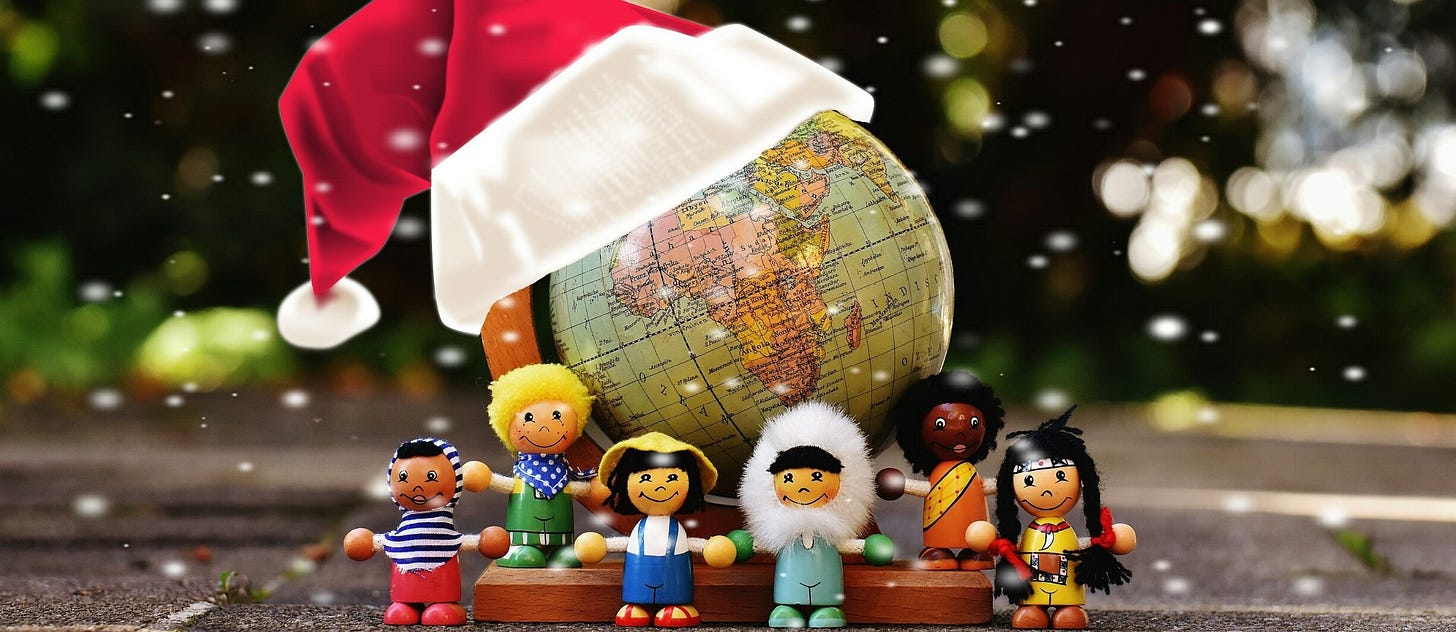Christmas time is the time for donations for the needy of this world. People also like to solicit charitable gifts for the poor in Africa. However, many projects are not suitable for eradicating poverty, says the author. But some are. Who can you donate to?

Why do a third of people on the African continent still live in extreme poverty, more than anywhere else, even though billions in aid programs from the North have flowed there over the past 50 years? Despite enormous amounts of aid, many African countries are still on the brink today. The aid subsidizes bad policies: mismanagement, corruption, chaos and hopelessness are the results of failed traditional development aid. The still poor countries show that money alone is not a miracle cure and can even cause damage. And that development work only works if the aid workers talk to the people on the ground and involve them and not just the governments.
Large amounts of money often lead to structures that are very susceptible to corruption. Money often does not end up where it is supposed to. The millions lead to further dependencies, as they prevent the country's own developments. The programs have made Africans dependent and stifled any personal initiative. The image is cultivated here: Africa is poor, helpless and urgently dependent on the support of patrons from the West. Where does the conviction come from that Africans cannot make it on their own? But when the “benefactors” are long gone, the poverty remains.
The US economist William Easterly wrote in his book The White Man's Burden: Why the West's Efforts to Aid the Rest Have Done So Much Ill and So Little Good: “As soon as the West is willing to help individuals instead of governments, some of the knots that are now paralyzing development aid will unravel.”1 The international “do-gooders” are pushing forward and preventing governments from fulfilling their duties. Perpetual aid is needed to make a living. Only a few journalists are interested in following the money's journey.
Mocking the sense of mission
Angus Deaton, winner of the Nobel Prize for Economics, also wrote: “One of the reasons why current development aid is not suitable for eradicating poverty in the world is that it hardly even tries. In most cases, aid is geared less to the needs of the recipients than to the domestic and international interests of the donor country.”2 James Shikwati, Kenyan economist, writes about famine: “It is really sad. We have the constant fundraisers instead of the government living up to its responsibilities and rationalizing agriculture, for example, or its distribution system.” Critical Africans mock the sense of mission and moralism of our Western politicians and have stopped taking us seriously.
China has long since shown that trade rather than aid is a better way to move Africa forward. I have often written about this.3
Small sums that demand and promote individual initiative make more sense.

The donation drum is being beaten again. My suggestion: Don't let yourself be put under pressure to donate. Reproachful images are intended to appeal to our guilty conscience. The aid organizations know that this does not do justice to the poor and degrades them to petitioners unable to act. Pity-inducing photos - often with the help of professional advertising agencies - are usually used by dubious companies.
Only give your money to organizations that provide transparent and comprehensive information about their strategy, activities and impact. Here are some small organizations that have been successful for years and promote education and health, where the much-used slogan “helping people to help themselves” is really appropriate. They break through the mental comfort zone and examine which approaches actually work and what has proven successful.4
Germany:
Gesundes Afrika e.V. (früher AMREF), Berlin
Pro-Interplast, Seligenstadt
EinDollarBrille, Erlangen
Schulbank e.V., Havixbeck
Bildungswerk-Westafrika, Bedburg
Austria:
Rain Workers (former Aktion Regen), Vienna
Switzerland:
Aqua pura, Wolfhausen
This text was first published in German by Achgut and translated into English by me. I have also added some links and remarks. Volker Seitz was ambassador to Africa for the German Foreign Office for seventeen years and is the author of the bestseller Afrika wird armregiert (Africa is being governed into poverty), dtv, 11th edition 2021.
Guest posts do not automatically reflect the opinion of the blog owner.
This quote has been retranslated from the German edition into English, so presumably does not correspond to the wording of the original edition.
This quote has also been retranslated from the German edition into English, so presumably does not correspond to the wording of the original edition.
When I asked Volker Seitz about the role of China, he replied: “Of course China has its interests. However, if I were African, I would also have my factories, railroads, stadiums and roads built by the Chinese or Koreans. As I was able to observe in my own time, they are finished much faster. As African acquaintances keep telling me, they don't believe our altruism. They prefer the Chinese because they are clear about what they expect in return (minerals, oil, etc.). You can criticize all that, including the fact that China does not demand respect for human rights. James Shikwati is spot on when he says: “China builds roads, Europe counts insects”. He's referring to the usual doubts before they even start.” The author will update the section on China for a possible revised 12th edition next year.
Unfortunately, the author has no explicit recommendations for English-speaking donors. However, he assures us that he has been taking a close look at the organizations mentioned and has visited some of them. Some of them also offer a self-presentation in English online.


